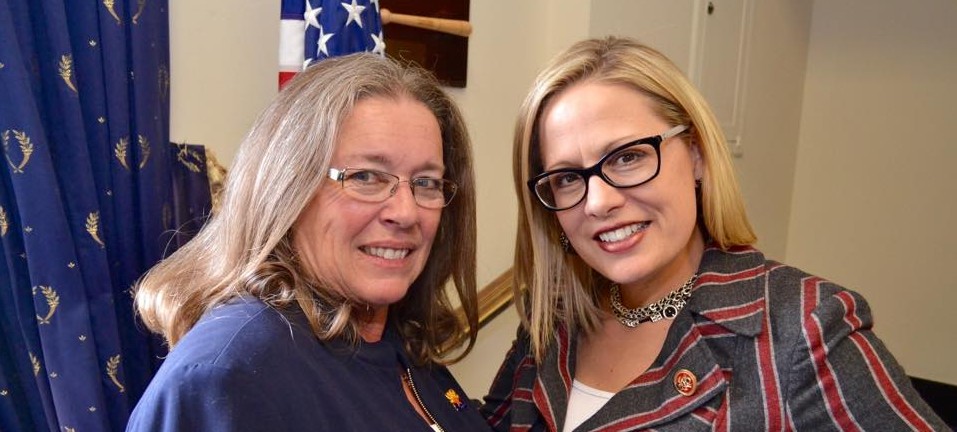WASHINGTON, D.C. – Dec. 1, 2015 – Today, Congresswoman Kyrsten Sinema (AZ-09) and Congressman Mike Fitzpatrick (PA-08) introduced legislation reducing burdensome regulations on small and emerging businesses. The Fostering Innovation Act provides commonsense regulatory relief for companies on the cutting edge of scientific and medical research.

“Emerging growth companies make significant investments along the path from discovery to development to delivery and often do not see a financial return in the early stages of a journey that can span decades,”said Joan Koerber-Walker, president and CEO of the Arizona Bioindustry Association (AZBio). “By easing the regulatory burdens of Sarbanes-Oxley in these early years, this bill will allow EGCs to focus more time and resources on getting new innovations to market. We greatly appreciate Congresswoman Sinema’s leadership in addressing this key issue and for all of her efforts to remove obstacles from the path of our innovators so they can move American innovations forward faster. ”
(Pictured: Joan Koerber-Walker, AZBio President & CEO and Congresswoman Kyrsten Sinema.)
Today, Congresswoman Kyrsten Sinema (AZ-09) and Congressman Mike Fitzpatrick (PA-08) introduced legislation reducing burdensome regulations on small and emerging businesses. The Fostering Innovation Act provides commonsense regulatory relief for companies on the cutting edge of scientific and medical research.
“I’ve heard from companies throughout my district that burdensome and unnecessary regulations stifle their ability to grow and succeed,” said Congresswoman Sinema. “This legislation provides commonsense regulatory relief for emerging companies on the cutting edge of scientific and medical research. I’m committed to working with my colleagues on both sides of the aisle to ensure Arizona’s innovative small businesses have the chance to thrive.”
“Startups and emerging companies need to focus on creating jobs, not navigating red tape. This bipartisan, commonsense reform to one size fits all regulations allows growing businesses to better compete in critical research and development,” said Congressman Fitzpatrick. “The Fostering Innovation Act is a solution that allows Congress the opportunity to remove unnecessary road blocks that prevent growth and economic certainty for small businesses in Bucks and Montgomery counties, and around the country.”
“Emerging growth companies make significant investments along the path from discovery to development to delivery and often do not see a financial return in the early stages of a journey that can span decades,”said Joan Koerber-Walker, president and CEO of the Arizona Bioindustry Association (AZBio). “By easing the regulatory burdens of Sarbanes-Oxley in these early years, this bill will allow EGCs to focus more time and resources on getting new innovations to market. We greatly appreciate Congresswoman Sinema’s leadership in addressing this key issue and for all of her efforts to remove obstacles from the path of our innovators so they can move American innovations forward faster. ”
Section 404(b) of the Sarbanes-Oxley Act of 2002 requires a publicly-held company to hire an auditor to attest and report on the company’s financial management and internal controls. In order to help businesses manage the burden and expense of this auditing requirement, Congress passed the Jumpstart our Business Startups Act (the “JOBS Act”) of 2012. The JOBS Act exempts certain emerging growth companies making less than $1 billion from Section 404(b)’s auditing requirements for up to five years. This exemption remains critical to ensure startups are not saddled with regulatory burdens they cannot afford during vital periods of financial growth.
This one-size-fits-all exemption, however, does not take into account the unique business model of research-driven companies, particularly those invested in medicine and bioscience. The nature of these companies’ work calls for longer development timelines and more capital for potentially groundbreaking scientific and medical breakthroughs. After only five years under the current JOBS Act exemption, these companies simply cannot afford to divert their limited resources and pay upwards of a million dollars to hire auditors to comply with federal regulations.
